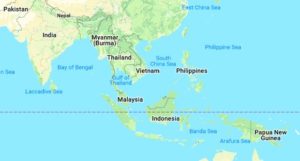Filipino scientists and entrepreneurs may now find it easier to live and work in China as its government unveils a new visa program for “high-end foreign talents.”
In an advisory, the Philippine Overseas Employment Administration (POEA) said that under the new visa program, the China R visa or China talents visa was being issued to individuals considered high-end foreign talents like scientists, international entrepreneurs and leading figures in technology-intensive sectors.
“[They are] urgently needed in the economic and social development of China,” the POEA said.
The China R visa is a multiple-entry visa that is valid for five to 10 years and allows individuals to stay in China for 180 days for each entry.
The POEA said the application for an R visa could be accomplished online free of charge.
“Shanghai’s Municipal Human Resources and Social Security Bureau assess the visa applicant based on a grading and classification for high-end foreign talents. Qualified applicants are issued a confirmation letter or certification within five days of submission online of the application form,” the POEA said.
It said the confirmation letter or certification would allow qualified applicants and members of their families to apply for the R visa at Chinese embassies or consulates in their home countries.
Labor pact with Israel
The Philippine government is reviewing the terms of a proposed bilateral labor agreement with Israel.
Labor Secretary Silvestre Bello III sent a top-level team to Tel Aviv to meet with their counterparts and submit recommendations for the early conclusion of a Philippines-Israel bilateral labor agreement.
In an administrative order, Bello instructed the team to clarify certain issues before a framework agreement could be forged and protocols on the temporary employment of Filipino caregivers in Israel could be implemented.
He expressed optimism that “harmonized positions on current differences” could be adopted to end the impasse.
The Philippines has proposed measures intended to save Filipino caregivers from paying excessive fees and provide them an additional layer of protection from accredited private agencies.
The government is also pushing for other provisions to guarantee adherence to recruitment laws and ensure the rights of applicants and transferees are respected.


